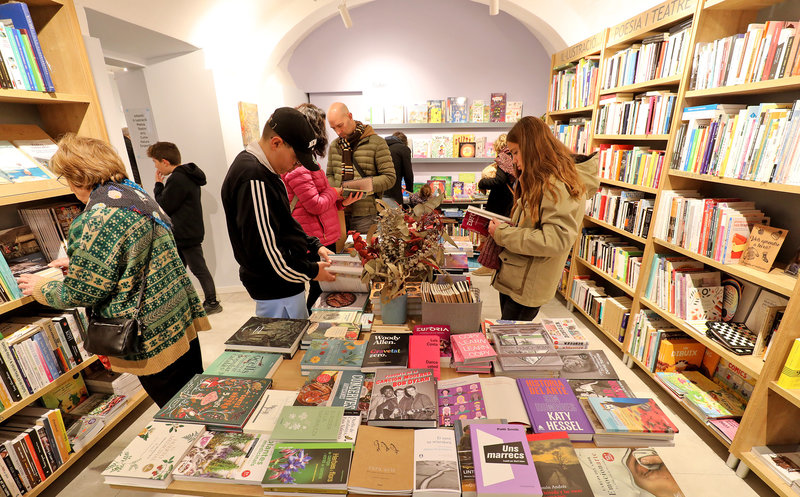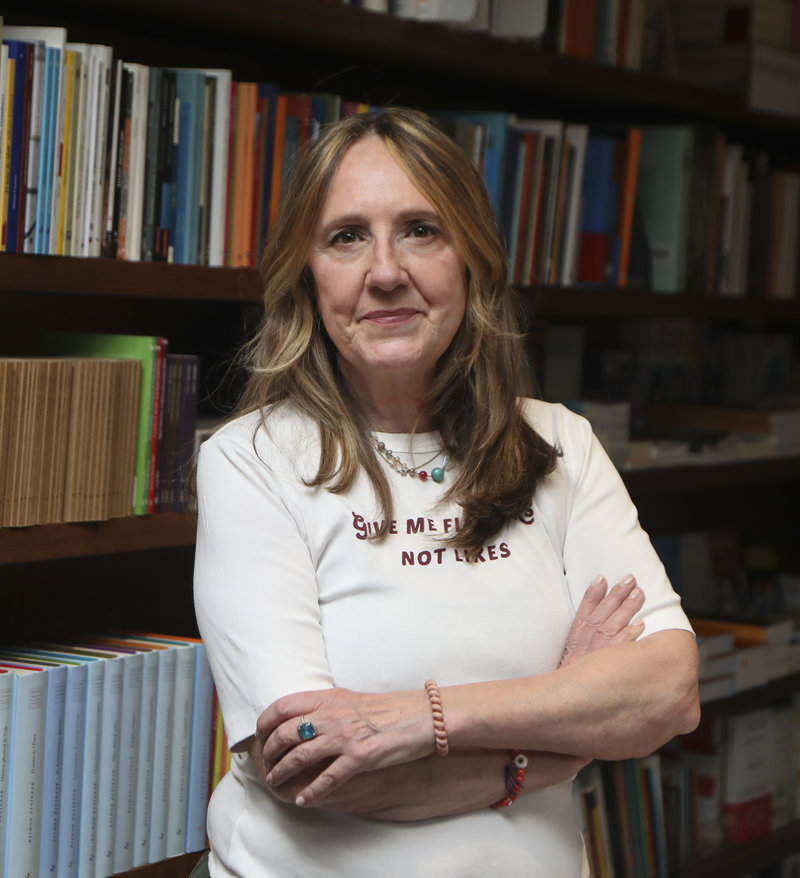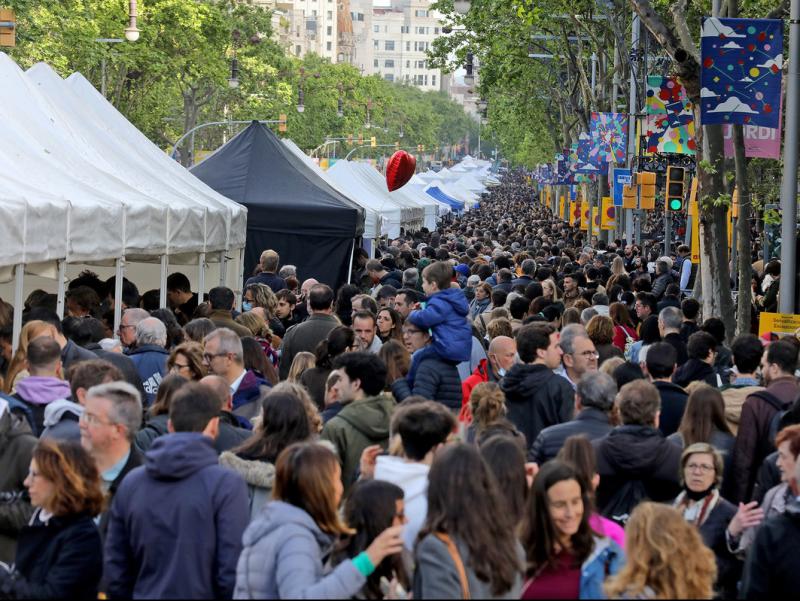The role of paper bookshops
Alba Donati, born in the Italian town of Lucca in 1960, is a poet, literary critic and bookseller. She worked in the publishing sector in Florence and got tired of it. So she decided to set up a small bookstore in the small town where her mother is from and where she spent a lot of childhood summers
@Bookstores, and this is nothing new, are often surrounded by an aura that makes them cosy, quiet and appealing. As an owner, you are highly unlikely to get rich, but you there’s a good chance that you will be able to make a living. For regular visitors, it can end up being like a corner of their home. Now you can buy books online and have them delivered to your home. Fine. There are also macro-bookshops, and nice ones too, where books are everywhere. Also fine. But in this report, we are going to talk about a trend that started some time ago: small bookshops that play the proximity card, that have regular customers who they know by name, whose family they ask after and who they know what to recommend to. Spaces with all kinds of aesthetic charms to enchant their potential public.
In Barcelona alone there are many bookshops with these characteristics, but in terms of density, the winner is the town of Calonge, which has seven bookshops for fewer than 12,000 inhabitants. Plus the many who are attracted by the claim of “Calonge, the town of books”.
The passion aroused by bookshops has been transcribed into novels, diaries and hybrid publications of all kinds. We will review some examples, starting with two new ones, La llibreria del turó, by Alba Donati, and My days in the Morisaki bookstore, by Satoshi Yagisawa (published, respectively, by Navona, with Catalan translation by Jordi Mas, and Letras de Plata, with Spanish translation by Estefanía Asins).
The latter, the debut novel by the Japanese writer, narrates the young protagonist’s discovery of a passion for books. Lost in the middle of Jinbo-cho, Tokyo’s bookshop and publishing district, a reader’s paradise, is the small Morisaki bookshop, which has been run by Takako’s family for more than three generations. It is the kingdom of Satoru, Takako’s eccentric uncle, enthusiastic and somewhat unbalanced, who devotes his life to books and the shop, especially after his wife abandoned him.
Takako, on the other hand, finds herself in a spiral of chaos and depression that has cost her friendships and work since Hideaki, whose husband she was in love with, told her that he had promised himself to another woman. Her uncle’s offer of work at the bookshop can’t come at a better time to completely turn her life upside down. Suddenly, Takako, who has never been a great reader, lives surrounded by books and enthusiastically discusses literature while discovering a new passion.
The other novel is La llibreria del turó, by Alba Donati (published by Edicions 62, with Catalan translation by Carles Biosca, and Lumen, with Spanish translation by Ana Ciurans Ferrándiz). It blends the personal diary with a chronicle of life. Its author, Alba Donati (Lucca, 1960), is a poet, literary critic and bookseller who got tired of working in the publishing sector in Florence. “Nowadays, they force you to multi-task and I don’t want to do it anymore,” confesses the author, who visited Barcelona to present her book.
In 2019, she decided to open a small bookshop, Sopra la Penna, in Lucignana, the small village in the middle of Tuscany where her maternal family are from and where she spent many summers. “Lucignana is a small town, it has about 180 inhabitants, but young couples with children live there and the atmosphere is a cheerful one. There is no bar, no restaurant, no accommodation,” she says.
In this narrative memoir, written as a diary, Donati relates her daily life and that of the bookshop over the course of a year, including orders. “Every day, she writes down book orders, which trace a sociological view of the buyers. The only book by Catalan authors is Parlar amb les plantes, by Marta Orriols, three copies,” says Pilar Beltran, editor of Edicions 62.
La llibreria del turó is the story of a double passion: one for books and one for people. And it is also the narration of the life of a happy and resilient woman, her roots, her sense of home, her choices to go against the mainstream, the story of her family, childhood, sentimental and literary education, and the origin of her love for stories.
But it wasn’t all like a romantic movie. A few months after opening the shop: “It caught fire because of a short circuit in the coffee maker. Then came the pandemic. And I also fell down a ladder and broke an arm and a leg,” Donati says, laughing. “After that, I got money and shows of support from everywhere, including from Italian emigrants to Australia and the United States.”
“On the day of the shop’s opening, a coach unexpectedly turned up with 30 women.” And some 85% of visits are by women. Perhaps because she has mostly books written by women and, on a separate shelf, others written by men. “They’re very different books; that’s why I have them separated. Women have been silent for many centuries, and now it’s time for us to talk more,” she says.
“The history of the bookshop is the story of my life; they’re inseparable.” That is why she decided to write the book, which she already has the rights for to make a film or series. “When I finished the book and gave it to my agent, it was a Friday and he told me he’d tell me what reception it’d had in a week or so. The next day, the Saturday, he called me because he kept receiving offers from publishers who wanted to publish it.”
In Catalonia, we have a similar example. Alins is a village in Pallars Sobirà with about 80 inhabitants on the way to the Pica d’Estats. An imposing natural environment that many missed during the pandemic, such as the journalist and nature-lover Meritxell-Anfitrite Álvarez (Andorra la Vella, 1987). A year ago, she lived and worked in Madrid, but the pandemic prompted her to make a life change. She decided to return to Alins, her grandmother’s village, and open a bookshop there, Natura Llibres, specialising in nature and mountain literature of any genre. She acknowledges that some may see it as “a bold and reckless dream”. In the heart of Pallars, life is different, and better. And for her, books are another basic need. Alvarez just needs to recount her experience in a book to succeed like Donati has.
Feature Sant Jordi’s Day





